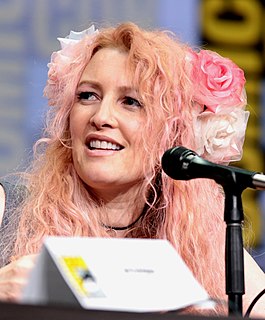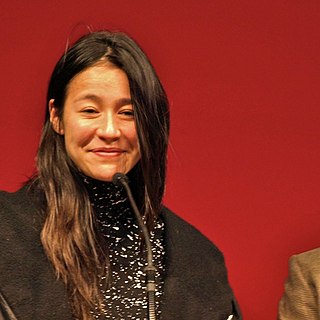A Quote by Alan Rudolph
Well, visual language is another boring discussion about the nature of film.
Related Quotes
I'm a big fan of fiction film where you have a story and you have to transform that into a visual language, basically working with actors and also transforming that into how you pronounce that in the visual language of the shots, the construction of the shots and the lighting. All of that appealed to me from the beginning of my career at the university. When I graduated from the university, I wanted to deal mainly with that, with the visual aspect of the movie.
One thing that you and I know is language. Another thing that you and I know is how objects behave in perceptual space. We have a whole mass of complex ways of understanding what is the nature of visual space. A proper part of psychology ought to be, and in recent years has been, an effort to try to discover the principles of how we organize visual space. I would say that the same is true of every domain of psychology, of human studies.
Films can't change the society, they can simply open the space for the discussion which can lead to social change and can start new forms of social activism. I feel formally that I've scratched the surface of something very important about the nature of nonfiction film, about what we're very rarely honest about: When you film anybody, they start performing.
The only way I know as a director is to figure out what the film is about. And out of the theme and the sense of what the film is about, all those decisions start to make sense. But to find that truth within it, you have to limit your possibilities and limit your choices. That's where this visual language grows out of.
The whole visual language of the movie is developed way before we get to set. Especially when you're doing visual effects and you don't have a lot of money to mess around, which we didn't, you have to really preplan everything. Pretty much every shot in the film was figured out months before we got to set.
It took a pretty drastic moment to shift my thinking towards visual arts. I got to a moment in my writing career when I wasn't trusting the language, I was really not trusting the written language, the English language. How do you work with a material that you don't have trust in? I had to step away from it and find another way of articulating and I had to do it without words.
Cinema is a visual language, and you're always looking for visual metaphors for things. You know, if I was writing a play about Howard Hughes, I could have him give a monologue about how he's terrified to touch a doorknob. But on screen, you know, working with Marty Scorsese in 'The Aviator,' that became the series of images that told a story.





































